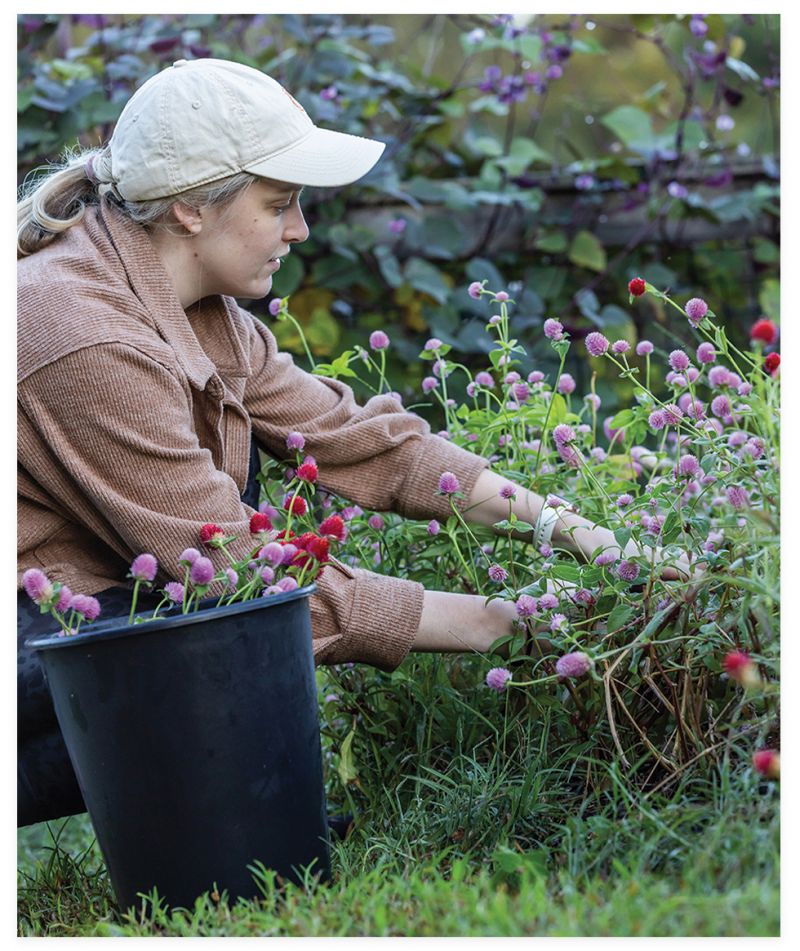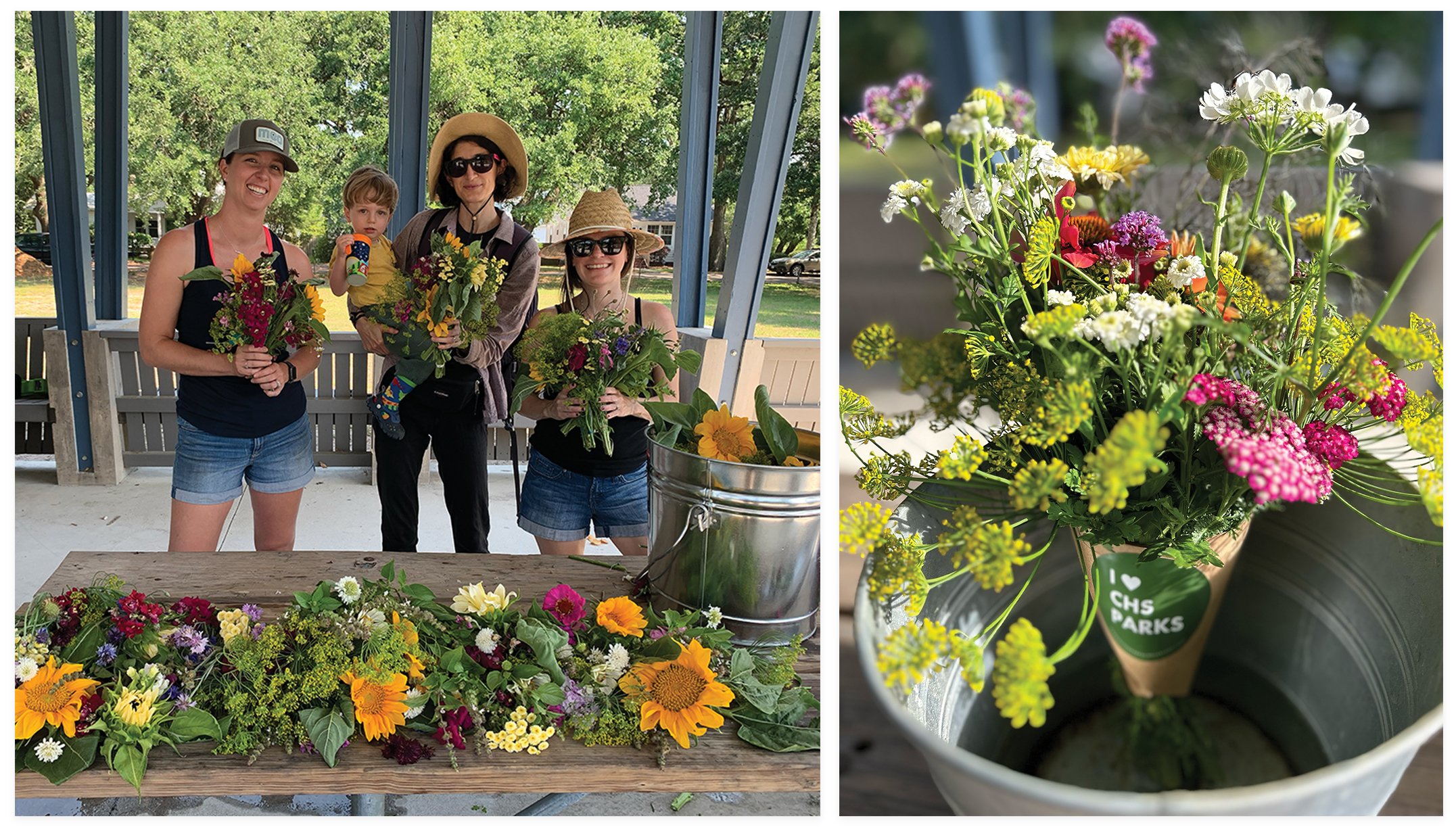The cut-flower program is expanding from James Island’s Medway Garden to Magnolia Community Garden in West Ashley

A volunteer with the Charleston Parks Conservancy picks flowers from Medway Garden to make bouquets that are given to nonprofits, including Postpartum Support Charleston, My Sister’s House, and Carter-May Senior Living Home. Visit the Magnolia Community Garden in Avondale from 11 a.m.to 1 p.m. on May 18 to create your own bouquet.
Since taking root in 2007, Charleston Parks Conservancy (CPC) has nurtured the Lowcountry’s public green spaces with the goal of inspiring residents to connect with nature and each other. In the ensuing years, the nonprofit has thrived like a fiery lantana shrub basking in the coastal sun. With a full-time staff of horticulturists and garden gurus, plus a trowel-yielding army of more than 900 volunteers, the organization digs into its mission with strategies such as educational fellowships, tree giveaways, and urban agriculture projects. This year, the conservancy plans to branch out further with two programs that cultivate community engagement.
From its home at James Island’s Medway Garden, the cut-flower program donates bright garden bouquets to postpartum mothers, survivors of domestic violence, senior living residents, and individuals facing food insecurity. “The program gets a piece of the parks into the hands of those that may not have access to green space,” explains Becca Hudson, the horticulturist who sprouted the concept with director of programs Courtney Olsen in 2021. And this year, the pick-me-up project is being propagated into a second location at Magnolia Community Garden in West Ashley’s Avondale neighborhood.
At 1,600 square feet, the new site offers nearly triple the growing space of Medway. While the plot looked like a mere dirt patch in February, by May, the garden will be spilling over with showy blooms from snapdragons, bachelor’s buttons, and Queen Anne’s lace. Come summer, sunflowers, zinnias, and celosia will flourish.
Every Thursday morning from May through November, volunteers with Postpartum Support Charleston visit the garden to gather the flower bundles. “It’s a beautiful line of giving—new mothers with their babies making bouquets for an older generation of women,” reflects Hudson. Since its inception, the program has donated more than 1,200 bouquets to Postpartum Support Charleston, My Sister’s House, Carter-May Senior Living Home, and Charleston County Public Library’s Free and Fresh Community Fridge program. For 2024, CPC has welcomed Florence Crittenton Programs to its list of partners.

Mothers with Postpartum Support Charleston gather bundles of blooms as part of the cut-flower program.
About a mile (as the crow flies) from the Magnolia cut-flower garden, the seeds of another initiative are germinating using a $50,000 grant from the South Carolina Forestry Commission. The conservancy has installed South Carolina’s first public food forest in the Ardmore neighborhood’s Mulberry Park. “We’ve sourced hundreds of plants from all over the Southeast,” says Katie Bell, an agriculture education teacher.
A food forest features seven layers of edible species, from large trees down to ground covers. In the half-acre Ardmore Food Forest, an overstory of native oaks, pines, and pecans will shade trees like persimmon, apple, citrus, and olive. Beneath that, the shrub layer will include plants such as figs, pawpaw, pineapple guavas, and prickly pear. A perennial vegetable garden, berry vines, low-growing plants like strawberries, and mushroom logs will comprise the lower layers.
This permaculture ecosystem will take about five years to start producing, so staff are concentrating on boosting soil health. “Once the forest is established, the whole community can access free organic produce for many years,” says Bell. “We’ll teach community members how to prune for maximum yield, when to harvest, and what to do with an overabundance.” (Persimmon jam, please!) The Forestry Commission is using the Ardmore Food Forest as a template for future grant applicants. “The reinstitution of food forests comes from the modern need to reconnect to nature,” says Bell. And that’s the sort of connection that can be gleaned from the Charleston Parks Conservancy.
WATCH: Learn more about fundraising efforts for a second cut-flower garden in West Ashley.